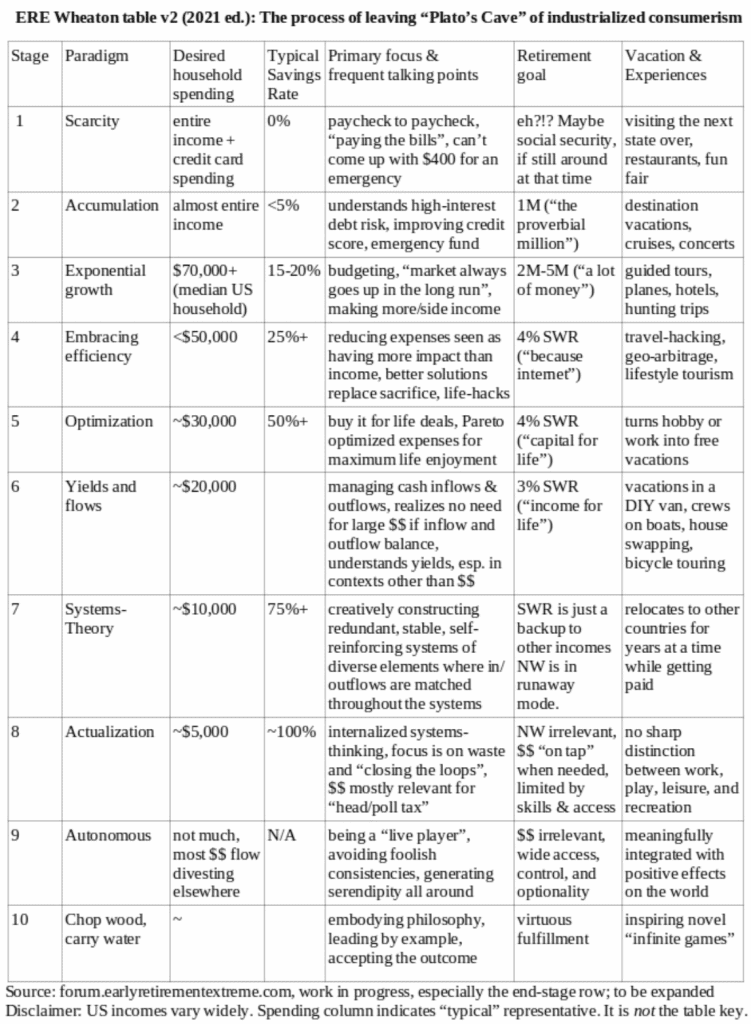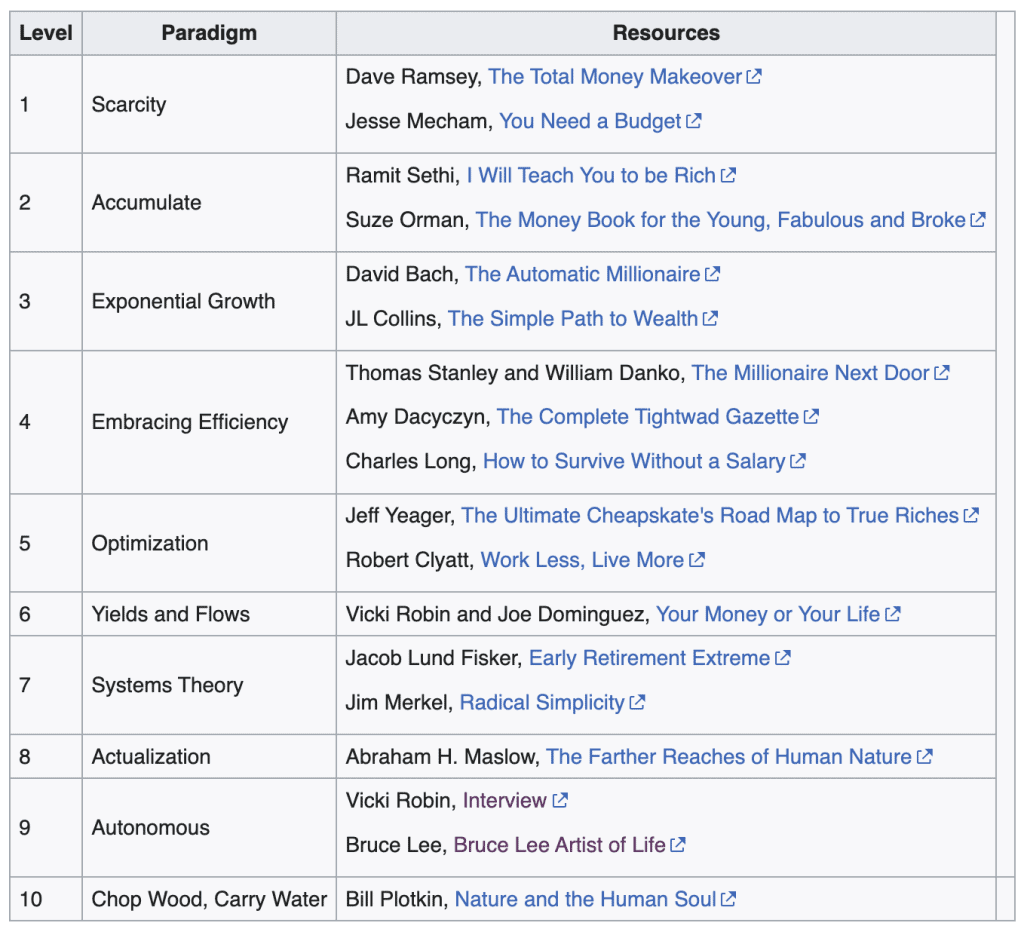Sign up to get the Sloww Sunday newsletter via email for free:👇

Sloww Sunday Newsletter 146 (May 28, 2023) — Slow Myths, Sharp Thinking, Fake Gurus, & More
Sloww Sunday shares my latest and greatest creations and curations to 10,000+ students of life. If you enjoy this issue, please help grow Sloww by forwarding the email version of this newsletter to other lifelong learners.
📚 Lifelong Learning
A Day in the Life of a Synthesizer
This will sound insane to some (while others will be smiling, nodding their heads, and saying “same!”), but this is a recurring way of how I discover new things as a synthesizer:
I started the week working on a single post about the close relationship between adult learning and adult development. Once I started consolidating and organizing content for this post, I experienced what I call “concept inception“—I realized I also needed to include the critical element of adult questioning as it relates to adult learning and adult development.
But, then I experienced another level of concept inception when I realized in order to explore adult questioning, I had to cover human programming (e.g. socialization, conditioning, enculturation, etc). By doing that, I ended up with far too much content for one post, so now I’ve got two posts: 1) the relationship between human programming & adult questioning, and 2) the relationship between adult learning & adult development.
However, the process of consolidating and organizing all this content led to a new discovery. I came across the mention of “Berger and Luckmann” in two different places: 1) Susanne Cook-Greuter’s ego development theory paper, and 2) Jack Mezirow’s work on transformative learning theory. When two things connect, I often investigate it to see if it’s worth exploring deeper. Turns out Berger and Luckmann’s 1966 book The Social Construction of Reality was ranked as one of the top 5 sociology books of the last century. It happens to be under 200 pages, so now I’m reading it and will publish a book summary.
So, I started the week with 1 post and now have at least 3 after all the concept inception and dot connecting. If anyone ever asks, “What’s a normal day in the life of a synthesizer?”, this is a good example!
- “Once you get into the joys of synthesis, you immediately think, ‘Do these things interact?’ Of course they interact. Beautifully.” — Charlie Munger
- “When we try to pick out anything by itself, we find it hitched to everything else in the universe.” — John Muir
- “Learn how to see. Realize that everything connects to everything else.” ― Leonardo da Vinci
Pair with: 25 synthesis quotes & 🔒100+ synthesis quotes
🌎 Lighter Living
ERE’s Recommended Reading
I’ve never come across anything that expanded my mind more about what’s possible with money than Early Retirement Extreme by Jacob Lund Fisker (Book Summary | 🔒Premium Synthesis). And, Jacob practices what he preaches—he’s spent ~$7k/year in total annual expenses for 20+ years (yes, really) and currently has 150+ years of his living expenses covered! He’s also developed something called the “ERE Wheaton Levels” which includes suggested sources based on where you’re at financially and mentally (see screenshots below):
- “The ERE Wheaton Table identifies a few representative mindsets along the personal economics journey as mastery is developed in spending efficiency and overall life skills. These descriptions are based on 10 years of experience talking to different people in the personal finance world.” — Jacob Lund Fisker


Good news: You can already access summaries of Early Retirement Extreme (Book Summary | 🔒Premium Synthesis) and The Farther Reaches of Human Nature by Abraham Maslow (Book Summary)
Future book summaries: Your Money or Your Life (already started reading it), Radical Simplicity, Nature and the Human Soul, and a book or two on Bruce Lee
Explore more: How do I design a lighter life? (Sloww Stage 1)
🧭 Deeper Purpose
Paradox of Slow Living + Working Hard
This week I tweeted that I’ve never worked more or harder than I have over the last 5 years of self-employment. A response said something along the lines of, “that’s not slow.” So, I realized my original statement didn’t include enough nuance or context (not uncommon in the space of a tweet!). So, here’s an explanation of why slow living and working hard are not at odds in my experience:
On busyness: I’ve lived the life of busyness, workism, and total work. It’s a key part of what led to my existential crisis—which I consider a one-two punch of busyness + purposelessness. So, I’m definitely not advocating for that. Purposeless work is depleting often because it’s energy usage you don’t enjoy—and feeling depleted all the time can trap you in a vicious cycle.
- “Busyness is, at its core, about misplaced priorities.” — Joshua Becker (Becoming Minimalist)
On slow living: Most people have misperceptions about what “slow living” means. It’s not about designing your home in a certain aesthetic (despite what you may see on social media), but it is about intentional lifestyle design. It’s not about living in slow motion, but it is about downshifting to a natural pace. It’s not about doing/being less, but it is about being less busy/hurried. It’s not about a busy life, but it is about a full life. It’s about eliminating the superficial/inessential in your life, intentionally making trade-offs, and prioritizing your life so you can go big on what matters most to you. It’s about saying “no” to performative busyness, bullshit jobs, the glorification of busy, busyness as a status symbol/badge of honor, etc—so that you can say “yes” to the deeper, more purposeful things in your life.
- “Slow living means structuring your life around meaning and fulfillment. Similar to ‘voluntary simplicity’ and ‘downshifting,’ it emphasizes a less-is-more approach, focusing on the quality of your life … Slow living addresses the desire to lead a more balanced life and to pursue a more holistic sense of well-being in the fullest sense of the word.” — Beth Meredith and Eric Storm
On slow living + working hard: When you’ve intentionally designed your life, downshifted to a natural pace that’s less busy/hurried, have eliminated the inessential, and are going big on the more purposeful things that matter most to you…work can often feel like play. Play is regenerating because it’s energy usage you do enjoy. Doing more of it, allows you to do more of it—a virtuous cycle or flywheel that feeds on itself. You may find yourself needing/wanting to play more and more. This “playing hard” is not in conflict with slow living (but at the same time should not to be confused with it “feeling hard”—it feels natural/easy and more like a flow state).
- “I frequently worry that being productive is the surest way to lull ourselves into a trance of passivity and busyness the greatest distraction from living, as we coast through our lives day after day, showing up for our obligations but being absent from our selves, mistaking the doing for the being.” — Maria Popova (Brain Pickings / The Marginalian)
How this works for me: The intensity and amount of work I do now is based on what comes naturally to me. To an outside observer, it may seem like I’m “working hard,” but to me it feels like I’m “playing hard.” It feels natural for me to give myself to something greater than myself. Sloww is my expression of how I’ve combined and aligned everything about myself: my personality + my purpose + my play + my philosophy + my philanthropy.
Explore more: How do I find higher purpose (Sloww Stage 2)?
Get the eBook: Ikigai 2.0: A Step-by-Step Guidebook to Finding Life Purpose & Making Money Meaningfully (+ Bonus Workbook)
🧠 Mental Wealth
Two Razors to “shave off” Bad Thinking
A “philosophical razor” is a principle or rule of thumb that allows you to eliminate unlikely explanations for a phenomenon or avoid unnecessary actions. As usual, I scoured the internet to find as many razors as possible, and a new post is coming soon outlining 25 razors worth knowing. In the meantime, here’s a bit about two of the most well-known.
- “A razor ‘shaves off’ unnecessary assumptions … Use Ockham’s razor and Hanlon’s razor to begin investigating the simplest objective explanations. Then test your theories by de-risking your assumptions, avoiding premature optimization.” — Gabriel Weinberg & Lauren McCann (Super Thinking)
Occam’s Razor: when multiple explanations are offered, the simplest full explanation is preferable (explanations should never multiply causes without necessity)
- “The principle of Occam’s razor, attributed to William of Ockham (1287–1347), states that when two or more hypotheses are consistent with the available data, then the hypothesis that introduces the fewest new assumptions should be preferred. In the original Latin, ‘Non sunt multiplicanda entia sine necessitate,’ which translates to ‘Entities must not be multiplied without necessity’ … The direct quote from William of Ockham is this: ‘Numquam ponenda est pluralitas sine necessitate’ (Plurality must never be posited without necessity) … Every time you introduce a new element to an explanation or make a new assumption, you reduce the probability that your explanation is correct.” — Steven Novella (The Skeptics’ Guide to the Universe)
- “We should prefer the simplest explanation with the fewest moving parts. They are easier to falsify, easier to understand, and generally more likely to be correct … If all else is equal, that is if two competing models both have equal explanatory power, it’s more likely that the simple solution suffices.” — Shane Parrish of Farnam Street (The Great Mental Models Volume 1)
- “The simplest explanation is most likely to be true. When you encounter competing explanations that plausibly explain a set of data equally well, you probably want to choose the simplest one to investigate first.” — Gabriel Weinberg & Lauren McCann (Super Thinking)
Hanlon’s Razor: never attribute to malice that which is more easily explained by stupidity, carelessness, or laziness
- “Never attribute to malice that which is adequately explained by carelessness. Like Ockham’s razor, Hanlon’s razor seeks out the simplest explanation. And when people do something harmful, the simplest explanation is usually that they took the path of least resistance. That is, they carelessly created the negative outcome; they did not cause the outcome out of malice.” — Gabriel Weinberg & Lauren McCann (Super Thinking)
- “In reality, for every act of malice, there is almost certainly far more ignorance, stupidity, and laziness … Hanlon’s Razor demonstrates that there are fewer true villains than you might suppose—what people are is human, and like you, all humans make mistakes and fall into traps of laziness, bad thinking, and bad incentives.” — Shane Parrish of Farnam Street (The Great Mental Models Volume 1)
Explore more: How do I master the mind (Sloww Stage 3)
Get Mini Mind: 365 Daily Emails of Bite-Size Brain Food
☯️ Timeless Wisdom
Is this spiritual teacher or guru legit?
If they are angry, hateful, or resentful toward any human or humanity, they aren’t actually awake—and a guarantee they aren’t enlightened. Instead, look for signs of compassion:
- “I have just three things to teach: simplicity, patience, compassion. These three are your greatest treasures. Simple in actions and in thoughts, you return to the source of being. Patient with both friends and enemies, you accord with the way things are. Compassionate toward yourself, you reconcile all beings in the world.” — Lao Tzu (Tao Te Ching)
Pair with: Tao Te Ching by Lao Tzu (Book Summary)
- “The beginner’s mind is the mind of compassion. When our mind is compassionate, it is boundless.” — Shunryu Suzuki
Pair with: Zen Mind, Beginner’s Mind by Shunryu Suzuki (Book Summary | 🔒Premium Summary)
- “Compassion arises when you recognize that all are suffering from the same sickness of the mind, some more acutely than others … The mind-identified state is severely dysfunctional. It is a form of insanity. Almost everyone is suffering from this illness in varying degrees. The moment you realize this, there can be no more resentment. How can you resent someone’s illness? The only appropriate response is compassion.” — Eckhart Tolle
Pair with: Eckhart Tolle’s The Power of Now (Book Summary) & A New Earth (Book Summary) plus the Eckhart Tolle 🔒Premium Synthesis
- “However bad other people may be, one should bear no hatred for them. Both desire and hatred should be eschewed. All that one gives to others one gives to one’s self. If this truth is understood who will not give to others?” — Ramana Maharshi
Pair with: Be As You Are by Ramana Maharshi (Book Summary | 🔒Premium Summary)
- “Your understanding of what the universe is all about changes as you proceed further along the path towards enlightenment. As your vantage point or perspective changes, you begin to understand more and more of ‘how it is.’ With this greater understanding comes greater compassion . . . an acceptance of ‘how it is’ . . . an ability to see the divine plan in everything . . . even in your failings and the failings of others.” — Ram Dass
- “Do you think that when Christ is lying there and they’re nailing the nails in, He’s saying, ‘Oh man, does that hurt!’? He’s probably looking at the guy who’s nailing him with absolute compassion. He digs why the cat’s doing it. What he’s stuck in. How much dust covers his eyes. Why he’s got to be doing it. That’s the way it is.” — Ram Dass
Pair with: Be Here Now by Ram Dass (Book Summary | 🔒Premium Summary)
Explore more: How do I embody wisdom (Sloww Stage 4)?
Share: Sloww Sunday currently sends to 10,000+ students of life each week. If you enjoyed this issue, please help grow Sloww by forwarding the email version of this newsletter to some friends and family. It’s free for them to subscribe here.
Support: Sloww is a one-human labor of love (it’s just me over here 👋). Your support keeps the site ad-free and invests in me while you invest in yourself—a true win-win! There are free and financial ways to support.
Speak: Have something you want to say, or just want to say hi? It’s always greatly appreciated. Just reply to this email or reach out socially.
Go with the Sloww,
Kyle Kowalski
Synthesizer & Solopreneur




